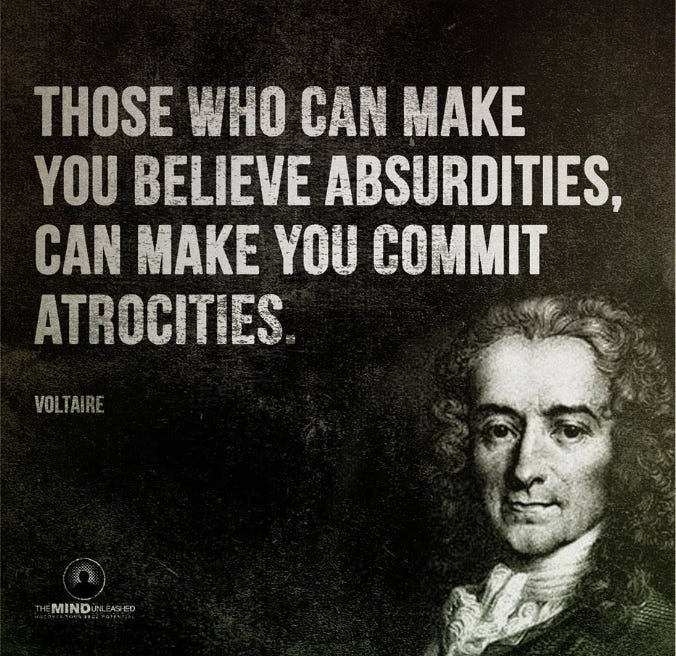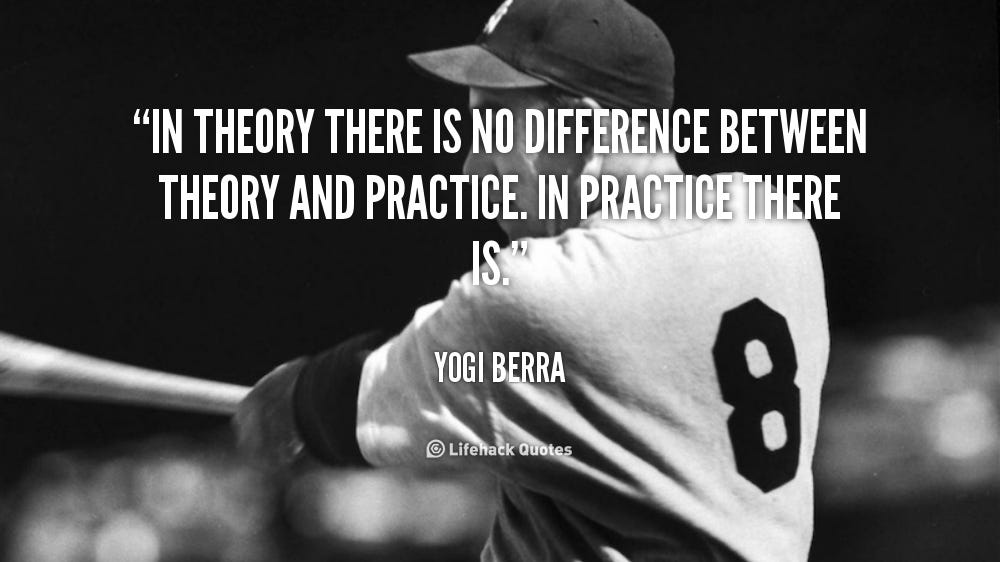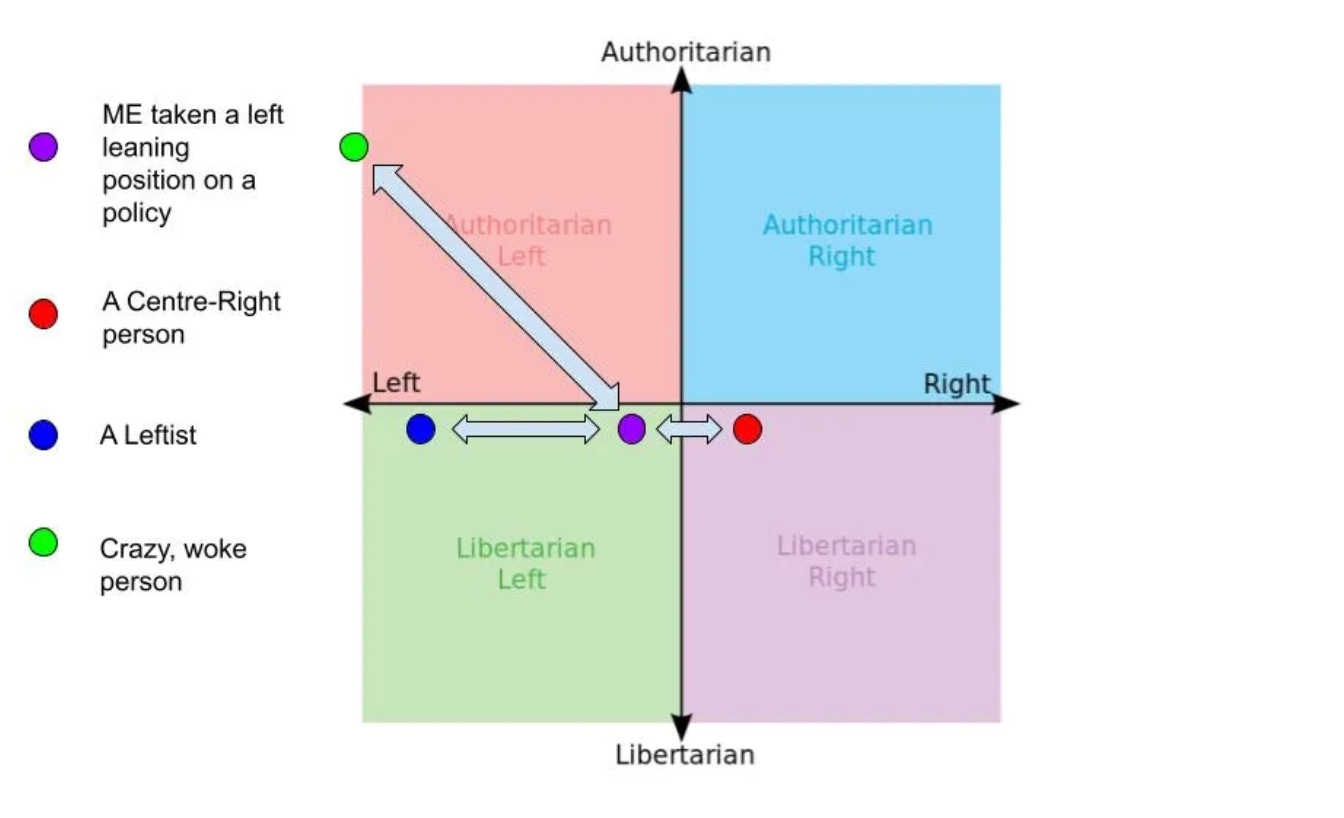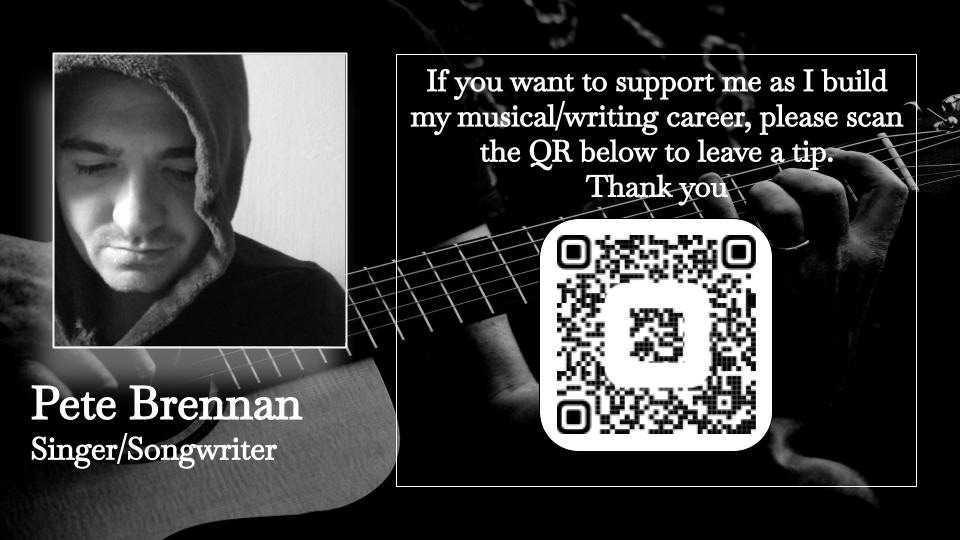After the conclusion of the Second World War, many intellectuals looked back at the atrocities that had been committed by the Nazis and wonder how everyday normal people in Germany could have been persuaded to go along with them.
The philosopher Hannah Arendt put forward the concept of ‘the banality of evil’ to explain this. She claimed that people will essentially crumble under social pressure and go along with almost anything if it means they will have an easier ride. This suggests that we humans are typically more concerned with not being seen as outcasts or dissenters from the dominant group than we are with reasoning to our own conclusions and having our own individual moral standings. People seem to take the path of least social resistance so they do not stand out and risk being exiled from the safety of the group.
Arendt also claims this effect is exasperated if the actions that we undertake to fit in are mandated by an authority figure. We tend to cede some moral responsibility to these figures and argue to ourselves that because the injunction to commit whatever action comes from a position of authority then they must be morally justifiable in some way.
This is perfectly displayed in the song ‘Tomorrow Belongs To Me’ from the 1972 film adaptation of the stage musical Cabaret. This famous musical follows the hedonistic nightlife of the jazz scene in early 1930s Berlin, Germany and comments on the growing popularity of the National Socialism political movement that would culminate in Adolf Hitler coming to power in 1933. In this scene, expertly directed by Bob Fosse, a young boy is singing, emphatically and jubilantly, a heartfelt and seemingly inspiring anthem. You can see the awe on the faces of his audience as they are swept in by the passion of his performance. They seem positively roused and rallied by it as he sings his heart out. Then the camera pans out to reveal a Swastika on the boy’s sleeve and it becomes clear he is wearing a Nazi uniform. It’s a chilling moment.
As the song builds to a crescendo, the camera dwells on the faces of two distinct groups within the audience; those who are rallying to the Nazi cause and those who seem to know the evil that is silently garnering it’s strength in Germany. The visible discomfort on the faces of the second group, as more and more of the first group stand to join in with the chorus, paints a deeply disturbing scene given the context that we have when looking back at history.
And the scene perfectly articulates how normal, everyday people can be swept up in a populace movement and eventually become accessories to atrocities. It’s a powerful scene that I have never forgotten.
Similar instances of seemingly ordinary people going along with the state's atrocities can also be seen in many other examples from history. The first third of Alexandr Solzhenitsyn’s masterpiece The Gulag Archipelago gives plenty of examples of people informing on their neighbours and family members who dissented from the party narrative and were thus complicit in aiding and abetting some of the worst of Josef Stalin’s atrocities.
Similar practices can be seen in the accounts of the Cultural Revolution in China where ordinary people became violently involved in ‘struggle sessions’, renouncing their traditional values and condemning their loved ones. Not to mention allowing themselves to become accessory to countless insidious practices at the behest of Mao Zedong that culminated in the deaths of millions of people.
Sadly, there are countless other examples of atrocity and genocide in history where everyday, good-natured people just went along with it all because it was presented as part of the social orthodoxy at the time.
Retrospectively, we can look back with clarity and sneer at these people or bemoan them for being too cowardly to stand up for an obvious moral right, but I am not convinced any of us would have acted any differently in their place. We can never know, but we are just as human as those people, bound to the same human flaws, behaviours and instincts.
But retrospective clarity clearly compels us to want to avoid making the same mistakes as our forebears. The question is, how? How can we stop this kind of thing from happening in the future? If we are bound by our own biology and social norms to take the path of least social resistance, how can we avoid going along with the next atrocity that may arise out of ideological orthodoxy?
Well, to me it is simple, in theory. If we always take the path of least resistance and we want to do the right thing; we should make doing the right thing the path of least resistance. Make doing the right thing the easiest thing to do and the thing that provides the most amount of social acceptance.
Sounds simple enough right? But, as I said, it makes sense in theory.
First, let me tell you where I got this idea from.
Alex Hormozi is an extremely successful American entrepreneur who has risen to prominence in recent years due to his unique brand of business advice. More than his business savvy and success, I admire him for his genuine and authentic brand of ‘NO BULLSHIT’ philosophy. Some of what he says may seem controversial but he often credits his worldview for his success and I for one agree with him on a lot of it.
He often talks about not playing the victim or identifying with victimhood, that we should rather take responsibility wherever we can, to just accept the world as it is an act accordingly. He’ll say things akin to ‘Oh, you're oppressed? And? What are you going to do about it?’ or he might say something like ‘If you haven’t made it yet, it’s your fault. It’s because you haven’t worked hard enough yet. You don’t deserve success yet.’ or ‘Nobody gives a fuck!’ That kind of thing.
About a year ago, Alex appeared on the billionaire businessman Tom Bilyeu’s podcast for a second time and expanded on the points these two successful entrepreneurs touched on in the previous interview. Both of them talk a lot about a mental ‘frame of reference’ and how shifting your perception of a situation can help you circumnavigate tricky problems.
One of the ‘framing’ approaches that Alex takes is essentially to try and make the thing he wants to accomplish the easiest path of action to take. As an example, he says if you want to eat healthier, the best thing you can do is remove all unhealthy foods from your house so only have healthy foods in your cupboards. Then, when you get hungry, eating healthy becomes the easiest option you're faced with.
Sure, you could drive to the supermarket to buy some unhealthy food but Alex bets that most of the time you won’t do that as it would just be easier and less of a fuss to eat the healthy food that you have at hand. Eating healthy is the path of least resistance, so you do that. Result, healthier diet.
Alex says he uses a similar approach when advising people on business strategy, along with any other walk of life. ‘Someone might say “Man, I'm lazy”, and I would say “That's amazing! A lot of great CEOs are lazy, that's fine. Let's use that and just make working more convenient than the other thing and then your laziness will take over”.
‘More convenient’ is the path of LESS resistance. The most ‘convenient’ would be the path of LEAST resistance.
So how do we translate Alex’s demonstrably successful business approach into preventing a society from going along with atrocities? How do we make speaking out against these insidious ideologies the path of least resistance?
In my opinion, (and I could be wrong), it hinges on three things; Stigma, Taboo and Education.
As Arendt suggested, people go along with things because of social pressure, peer pressure, etc because of the fear of being stigmatised as a social outcast. They want to fit in with the tribe so they can continue to enjoy the ‘safety in numbers’ protection that tribe membership brings.
It is also considered taboo in a society to speak out against social norms and the expectations of the tribe.
That’s where education comes into this. We need to educate our children about the aforementioned atrocities and the useful idiots who became accessories to them. We need to stigmatise these people and make acting like them the taboo; the ones who stayed silent and got swept up or played along for social clout. That way, it would be unthinkable for our children to do the same and they would instead see speaking up against such evil as a less resistant path than going along with evil. The social norm would be to not tolerate evil, to not allow oneself to be swept up in it and therefore, gaining acceptance to the dominant social group would be contingent on calling evil out.
Now the problem is that this all sounds a lot like social engineering which is fraught with its own torrid history. Also, reframing stigmas and taboos for political and societal change is a game largely played by the radical progressives in recent times, so I understand if this all sounds a bit icky.
But my issue with that is we already do this stuff, and to great effect; however it is in a one sided way. I have mentioned before about how I have spoken to several early twenty-somethings over the last few years and probed them on their knowledge of 20th century history. They have all heard of the Nazis, Fascism, Adolf Hitler, the SS, concentration camps, etc. As far as the Far Right goes it has been thoroughly and rightfully stigmatised to the point where even joking about being aligned with them in any way is unthinkably taboo. So far, so good. (Although I think there should be more freedom to make jokes about this stuff but that’s a whole other essay).
But all these kids knew practically nothing about the atrocities of the Far Left in the same century. Most knew the names Stalin, Lenin & Kim Jong Ill, but none had heard of Chairman Mao Zedong, the Great Leap Forward, the Revolutionary Youth, the Bolsheviks, Alexandr Solzhenitsyn, Gulags, et cetera, et cetera.
Neither had any of them ever been taught about the disastrous history of Islamic-Socialism coalitions in places like Iran in 1979, which would be an advisable route of research for any of the would-be ‘Queers for Palestine’ before they make that particular bed to lie in.
And this is my worry. There is no stigma against Left Wing overreach, because generations of our youths have been failed by the education system and taught a very one-sided view of political extremism. A disconcerting number of them don’t believe that the Left can go too far because they have been taught a palpably false binary narrative about political leanings. They believe in the Left are the ‘Good Guys’ of history and the Right are the ‘Bad Guys’, rather than seeing extremism itself as the enemy of democracy. This is worrying as it only sows the division and further alienates the majority of people who are broadly in the centre, whether they lean left or right. It also pushes the two sides of the culture war further and further adrift from one another, with each hardening the resolve of their antithesis. The irony is, both sides seem to be actively creating the very enemy they claim to be fighting by othering them.
Another worry is how liberally terms like Fascist, Nazi & ‘Far Right’ are used by those on the extreme left who have been at the receiving end of such a one-sided education. These terms have REAL meanings and represent REAL undesirable characteristics that we would want to correctly identify in bad actors if they did turn up, so it is important that they are not cheapened by overuse and overprescription. Bandying them around flippantly towards anyone who has traditionally conservative leanings makes a mockery of all those in our history who sacrificed so much fighting real ‘Far Right Thuggery’.
The same must also be said for terms like Communist, Maoist and Stalinist too, as I have noticed a disconcerting increase in usage of these terms by many conservatives who are now on the defensive. These terms are often aimed at moderately left leaning figures which is equally irresponsible behaviour in my view. As I have explained before, a left leaning moderate is closer to a right leaning moderate then a Cultural Marxist or a Woke ideologue. The same can be said for the centre right being closer to left centrists than the Neo-Nazis. The centre as a whole would do well to remember this.
All the terms listed in the above paragraph must be used sparingly and only when necessary so that if the real thing does manifest, the words still hold enough weight that they can articulate our concerns to the wider public. If a real Nazi turns up, and the masses have spent ten years listening to one side calling everyone else ‘Hitler’, they are almost certain to dismiss such concerns as hyperbole and overreaction. This is the real danger. We mustn’t allow anyone to cry wolf.
[Side Bar] The very existence of centrists breaks the ‘Good guy/Bad guy narrative & confuses the hyper-partisans because it exposes the religiously upheld fallacy that everyone who isn’t on their side is the enemy. I explain this in greater depth here.
Our children live in a society where the path of least resistance is to side with the Identitarian left, who already have a disproportionate level of control in all our institutions of influence at this time and will promptly cancel anyone who dissents from their theology. Speaking out against the Identitarian left in this current era is certain to get you exiled from the safety of the group. It is the path of MOST resistance these days. This is a yet another worry.
We need to teach history fully, clearly and in a non-partisan way to our children so they can make informed decisions. They will follow the path of least social resistance because they are only human and therefore cannot help it. So we should at least try to add some resistance to those paths that history has proved are dead ends so they don’t get swept down them. If it is not too late, that is.
Thanks for reading,
The Common Centrist










Also, the movie Zone of Interest to me is a huge wake up call to how easily an intelligent person - in this case a middle class military couple - could be convinced to dine with the devil. The couple just wanted a happy marriage, security for their children, and a nice place in the country. (you have to see the film to let this sink in). Maybe they wanted their dream too much? The career path he was on took them to a horrible place but it was the result of many small, seemingly insignificant decisions, where he was part of something that he couldn’t get out of at the end. A fascinating movie. Discuss.
As an educator, I want to avoid labels as this is something we teach children. One way that Hitler succeeded in getting a great many people to support his plan to exterminate Jews was to convince them that the Jews were their enemies and were taking things from them. In other words, Hitler created a victims' club and gave the victims villains to blame all their life problems on. Children need to be taught about the strategies people/adults/and children can use to turn one group against another. They also need to be taught that you can find stereotypes in every group.